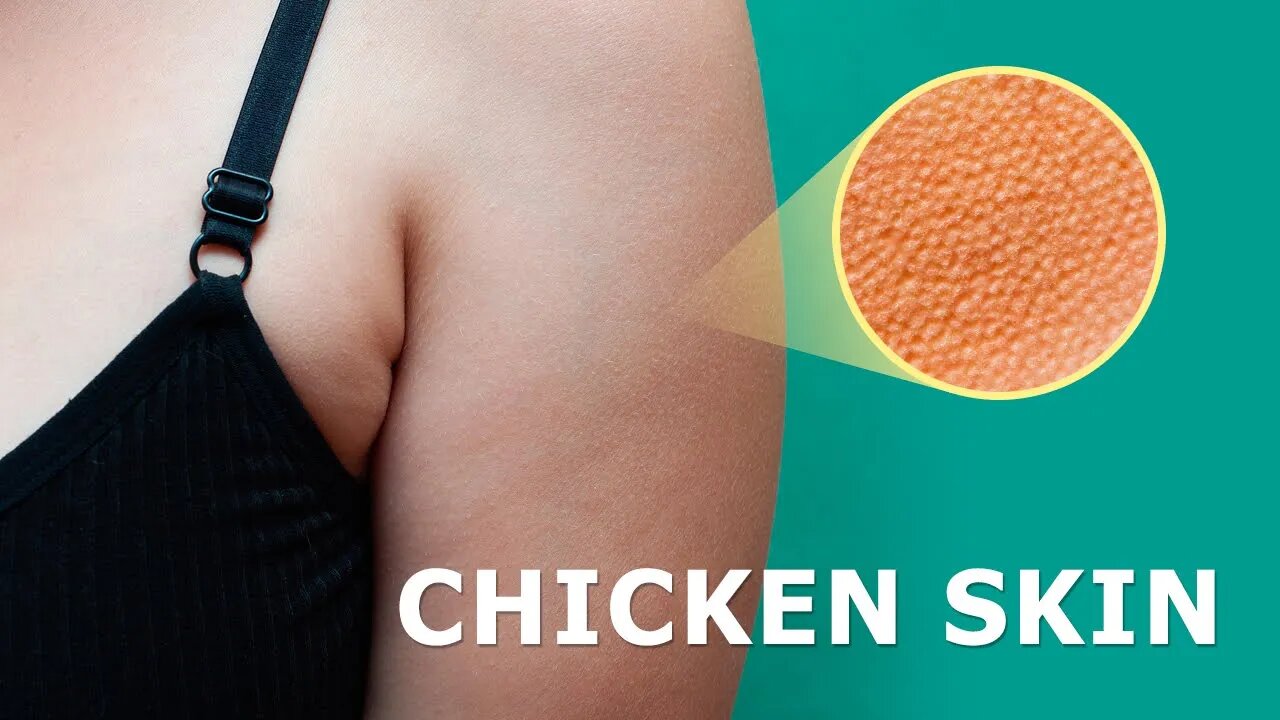Premium Only Content

How to Heal Keratosis Pilaris (Chicken Skin) Naturally
Do you have white bumps on your arms? Do you know what it means? It might be keratosis pilaris.
Keratosis pilaris, sometimes known as follicular keratosis or "chicken skin," is a common skin alteration.
It causes slightly hard white or red bumps that make the skin look like chicken's skin.
This change usually doesn't cause any itchiness or pain, appearing in any part of the body, most commonly on the arms, thighs, face, and buttocks.
Follicular keratosis is a genetic condition that can't be cured, only treated. The treatment is usually done with creams that hydrate the skin and help lessen the bumps.
Did you know that people with allergic diseases, such as asthma or rhinitis, have higher chances of developing keratosis pilaris?
The best things to lessen the bumps are good hydration (through creams and good eating habits) and keratolytic creams and soaps, which will break keratin.
The bumps of follicular keratosis lessen with time and with the use of these creams.
There are other important steps, like avoiding hot showers, not showering for more than 10 minutes, always moisturize the skin after showering, and avoiding rubbing towels and clothes on the skin.
Avoid exposing your skin to the sun for too long, and always use sunscreen.
Vitamin A deficiency can lead to keratosis pilaris.
Besides these tips, you can also try some natural medicines...
If you suffer from keratosis pilaris, follow these tips and share your experience with us.
0:00 What is Keratosis Pilaris (Chicken Skin)
1:27 How To Treat Keratosis Pilaris
2:27 Natural Treatments for Keratosis Pilaris
----------------------------------------
Facebook: https://bit.ly/38BWbw3
Pinterest: https://bit.ly/2Irvwa6
Disclaimer: The materials and the information contained on Natural Cures channel are provided for general and educational purposes only and do not constitute any legal, medical or other professional advice on any subject matter. These statements have not been evaluated by the FDA and are not intended to diagnose, treat or cure any disease. Always seek the advice of your physician or other qualified health provider prior to starting any new diet or treatment and with any questions you may have regarding a medical condition. If you have or suspect that you have a medical problem, promptly contact your health care provider.
-
 3:55
3:55
Natural Cures
1 year ago $0.79 earnedDrink This Tea Tonight to Flush Out All The Toxins from the Body
3.1K4 -
 3:32
3:32
Natural Cures
2 years ago $0.07 earned6 Easy Steps To Heal Your Thyroid Naturally
230 -
 LIVE
LIVE
The Kirk Minihane Show
4 hours agoKMS LIVE | January 2, 2025 - ft. Blind Mike & Beer Stud
1,010 watching -
 LIVE
LIVE
Grant Stinchfield
1 day agoWhere is DOGE When You Need it? Billions Wasted, Newsom Smiles!
663 watching -
 LIVE
LIVE
LFA TV
5 hours agoAMERICA UNDER ATTACK! | LIVE FROM AMERICA 1.2.25 11am EST
5,889 watching -
 LIVE
LIVE
Rethinking the Dollar
40 minutes agoYellen Mentions "U.S. Default" Days Before 'Alleged' Hack | RTD News Update
169 watching -
 DVR
DVR
Wahzdee
1 hour agoAm I Too Old to Keep Up? 🤔🎮 - Warzone Early Mornings! S1E3
10.6K1 -
 1:19:40
1:19:40
Steve-O's Wild Ride! Podcast
6 days ago $0.95 earnedThe Crazy Story Of How Steve-O Hired His Ranch Hand - Wild Ride #248
10.6K22 -
 LIVE
LIVE
AtrociousTV
2 hours agoBack on the Tarkov Wipe Grind #MAGA #RUMBLE
231 watching -
 2:08:48
2:08:48
Matt Kohrs
14 hours agoStocks Bounce, Breaking News & Day Trading Strategy Explained || The MK Show
40.2K2